

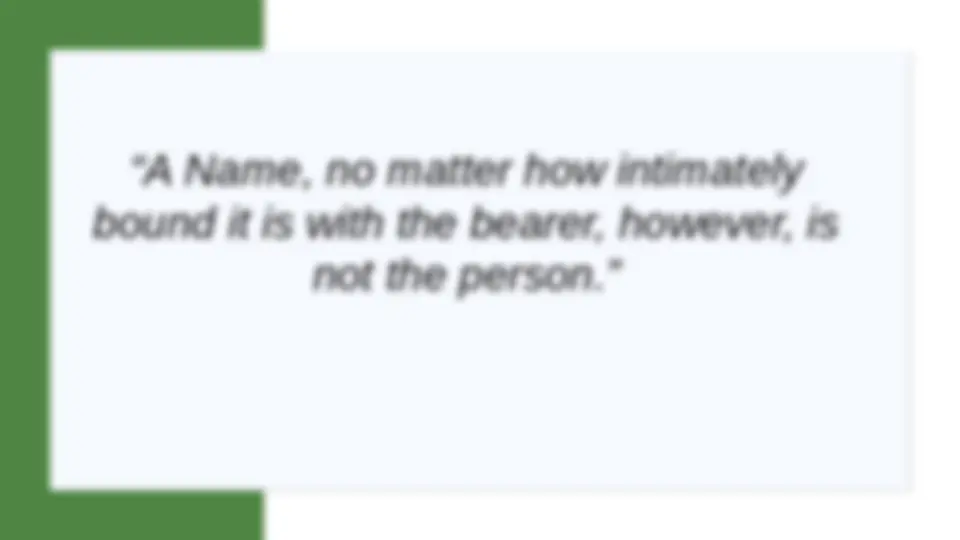

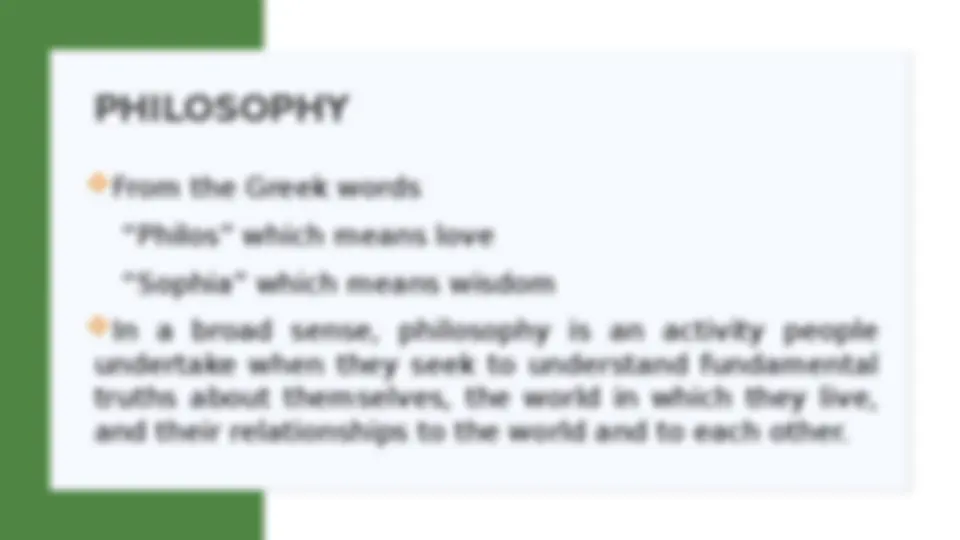
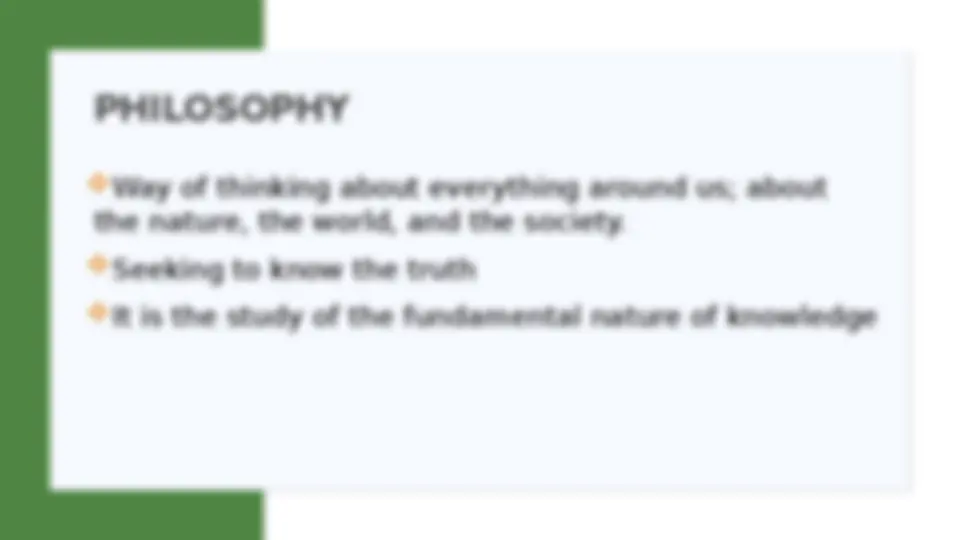
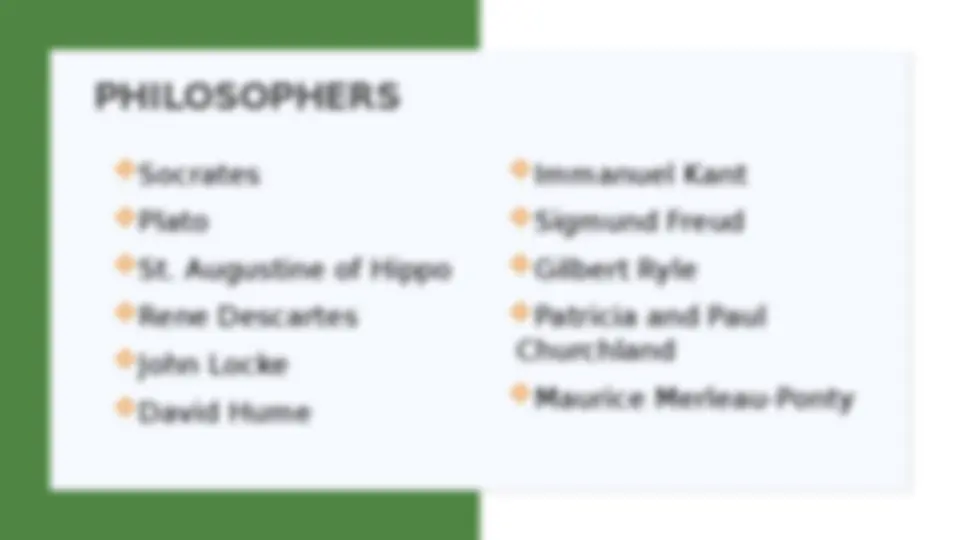
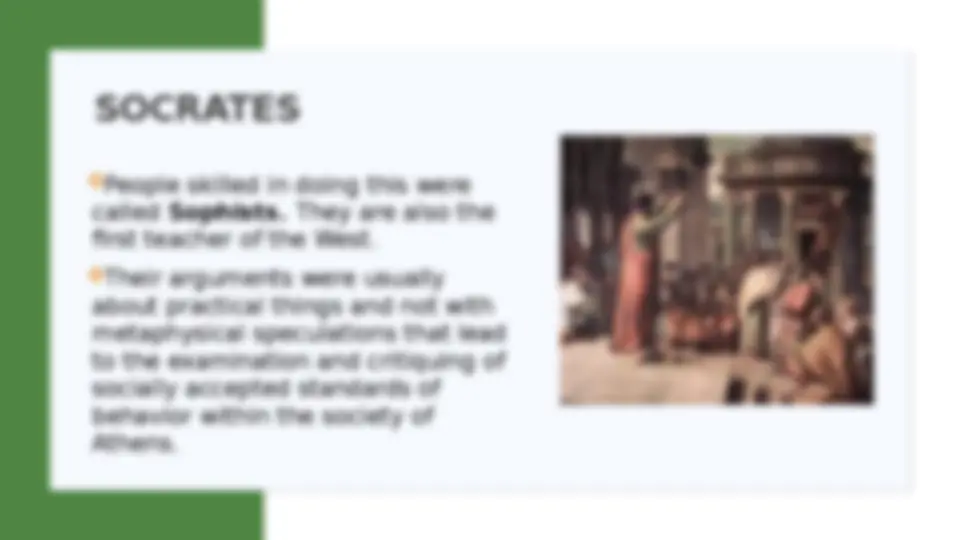
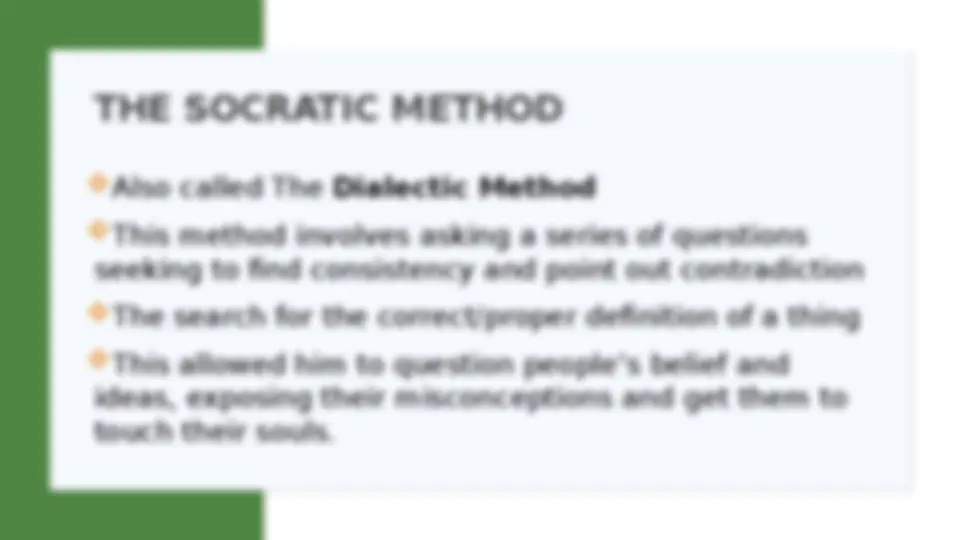
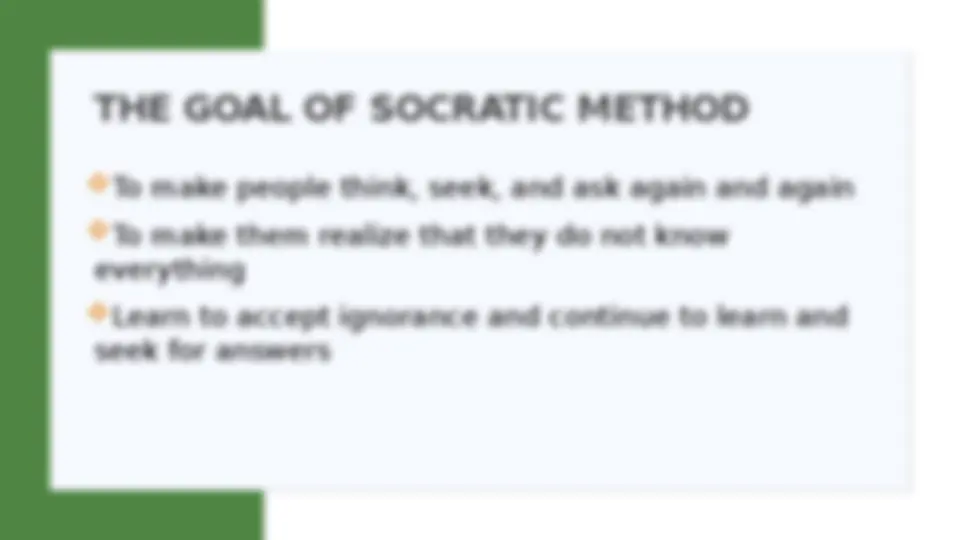
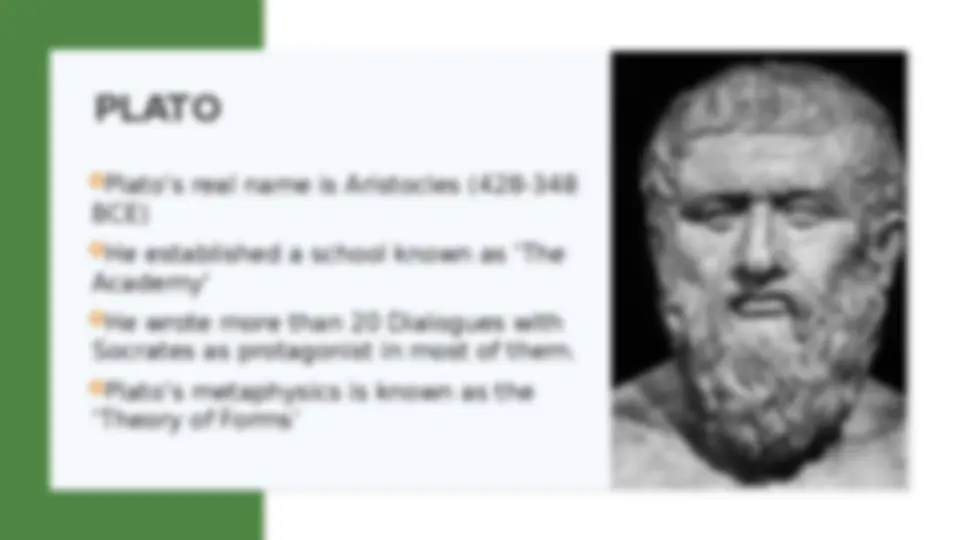
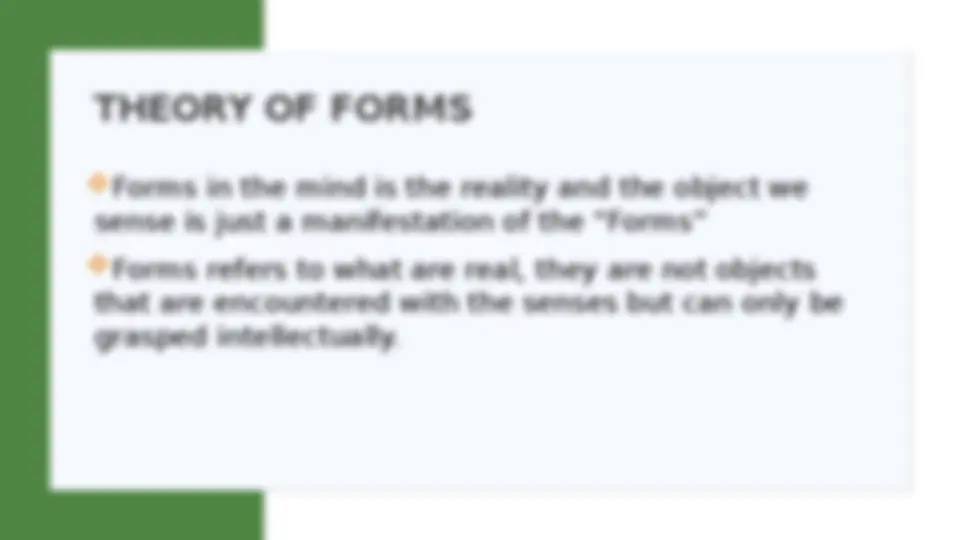
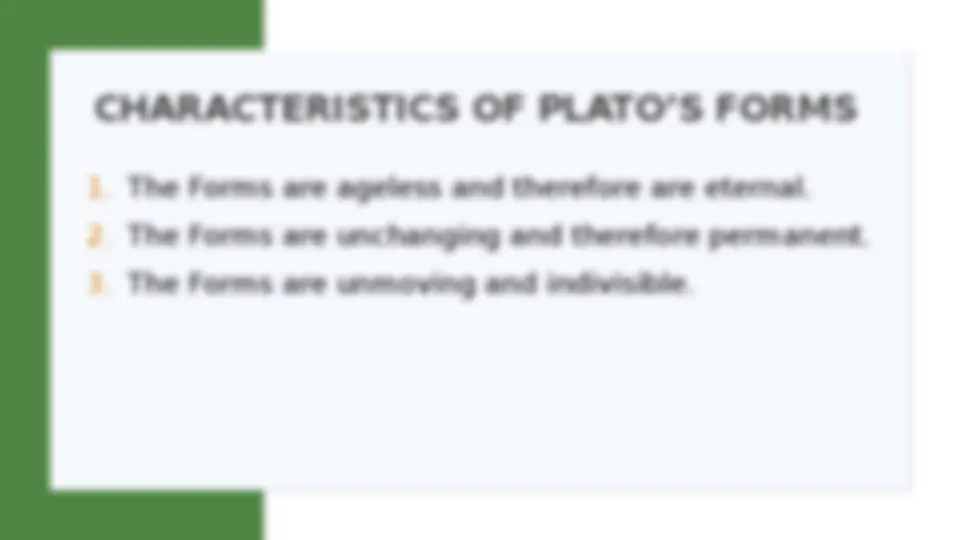
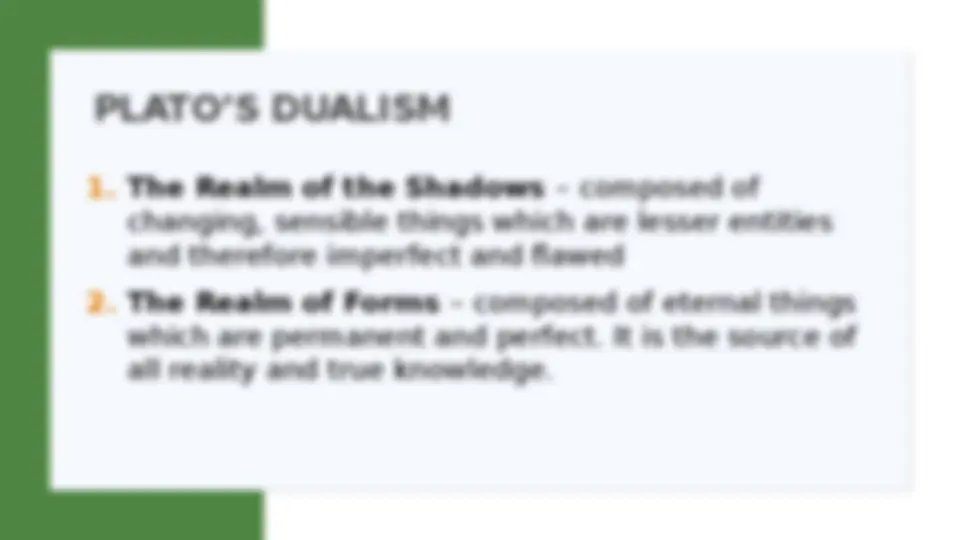
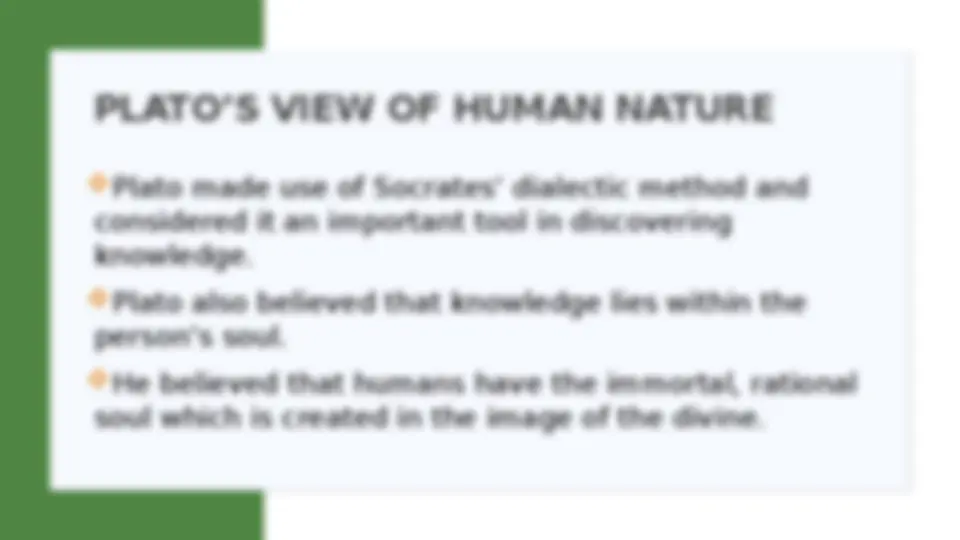
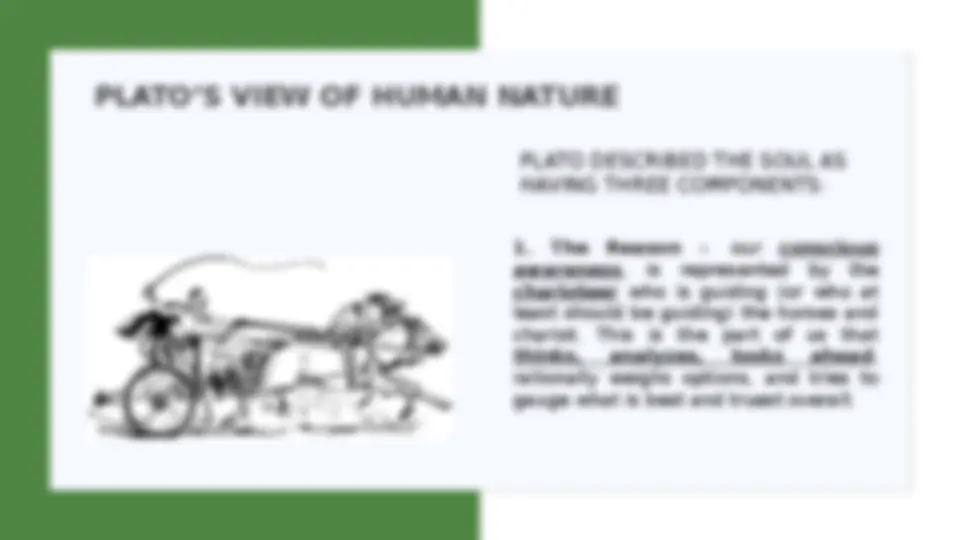
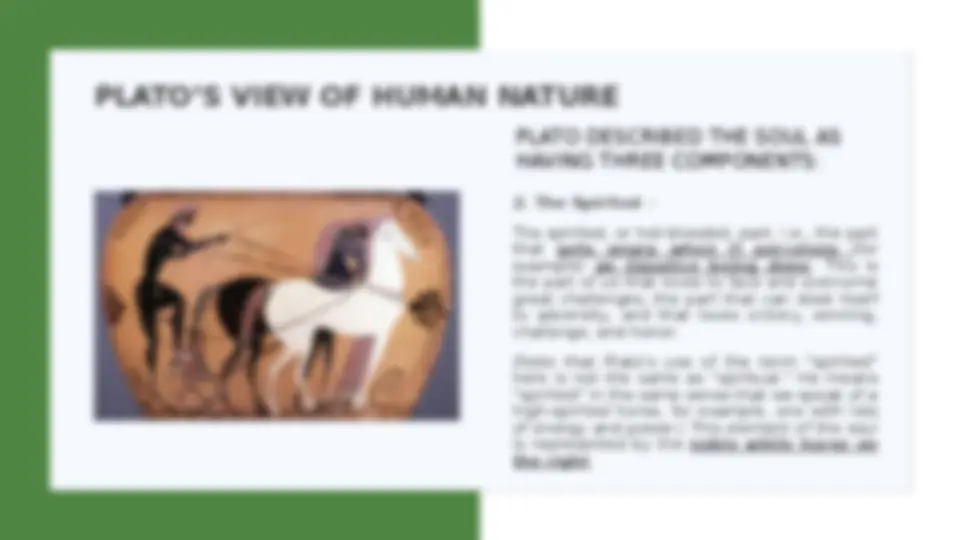
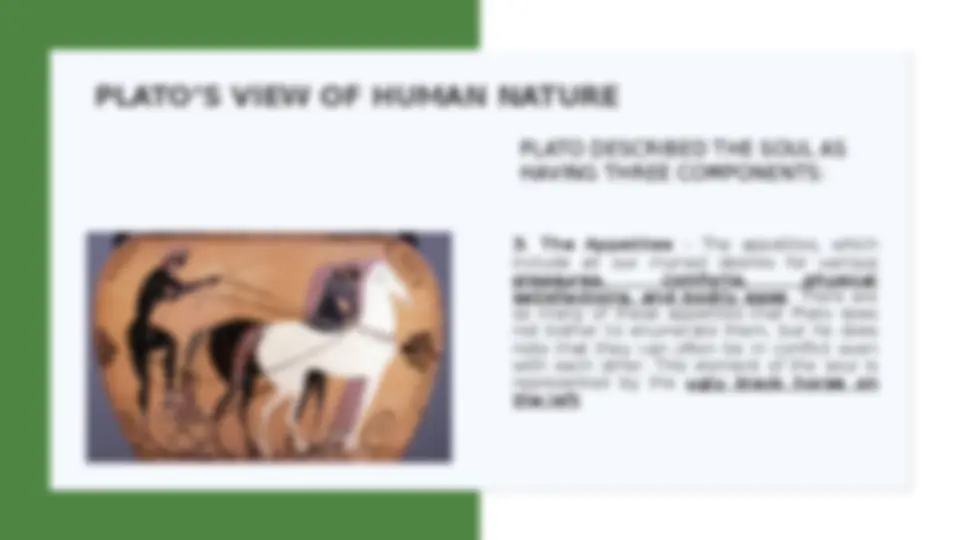
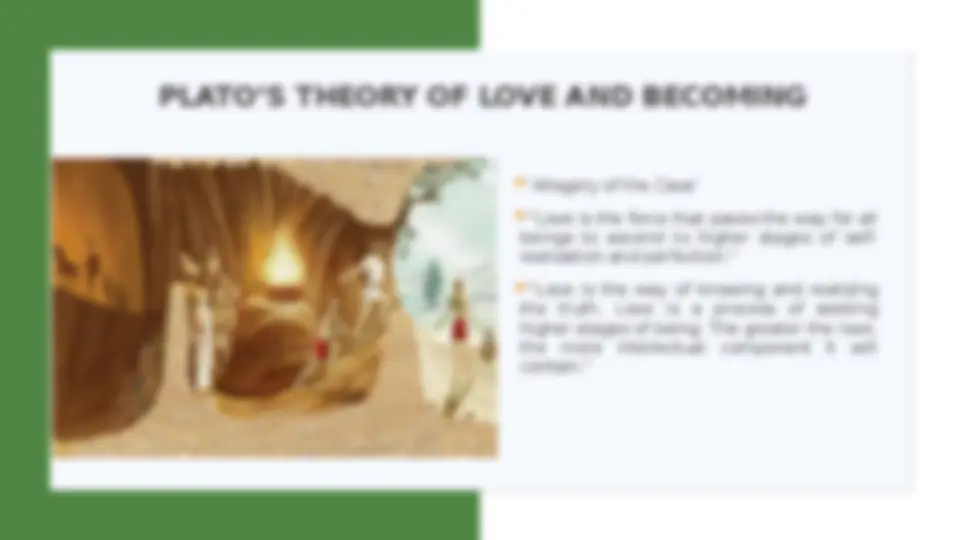
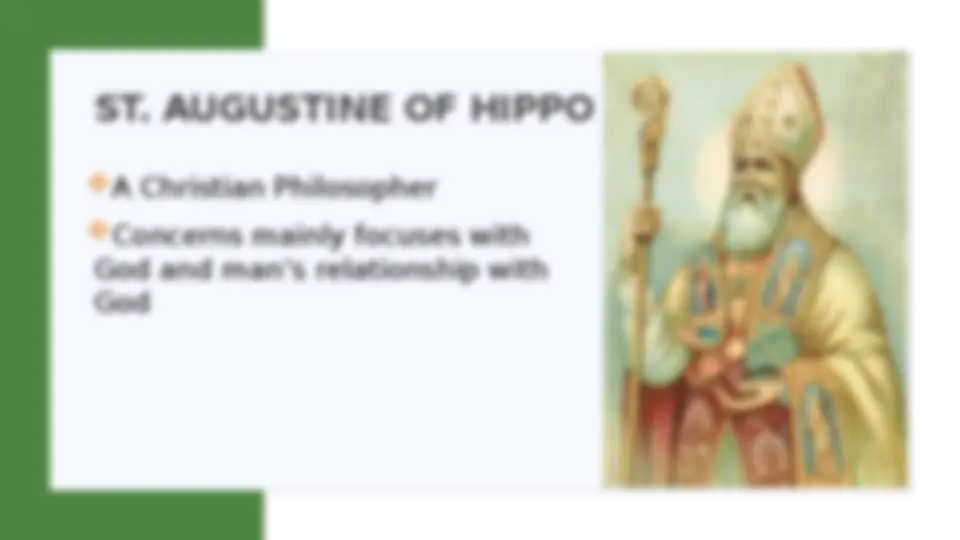
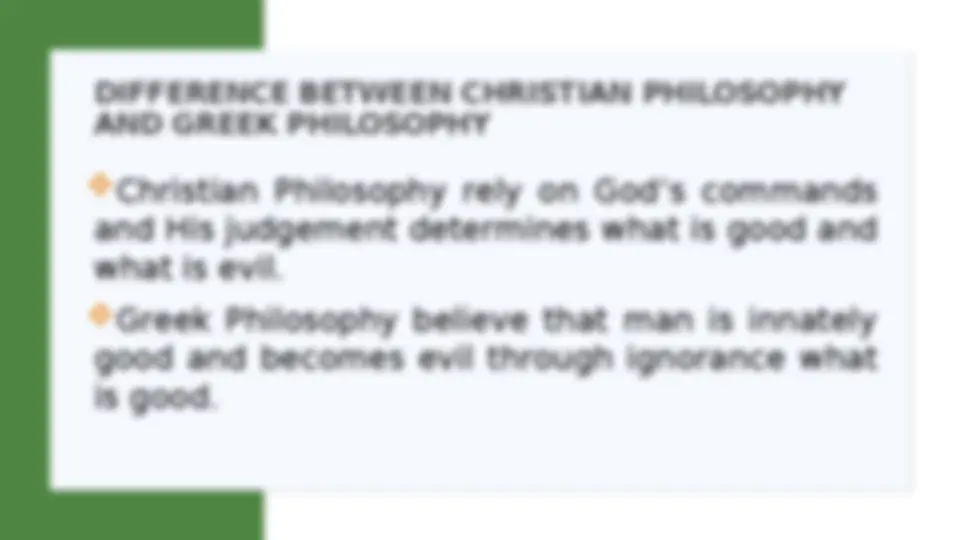
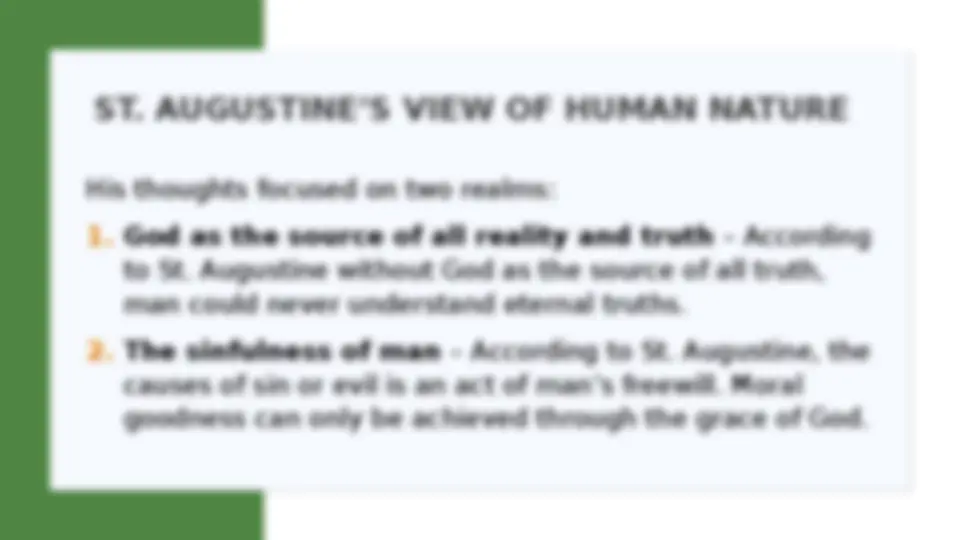
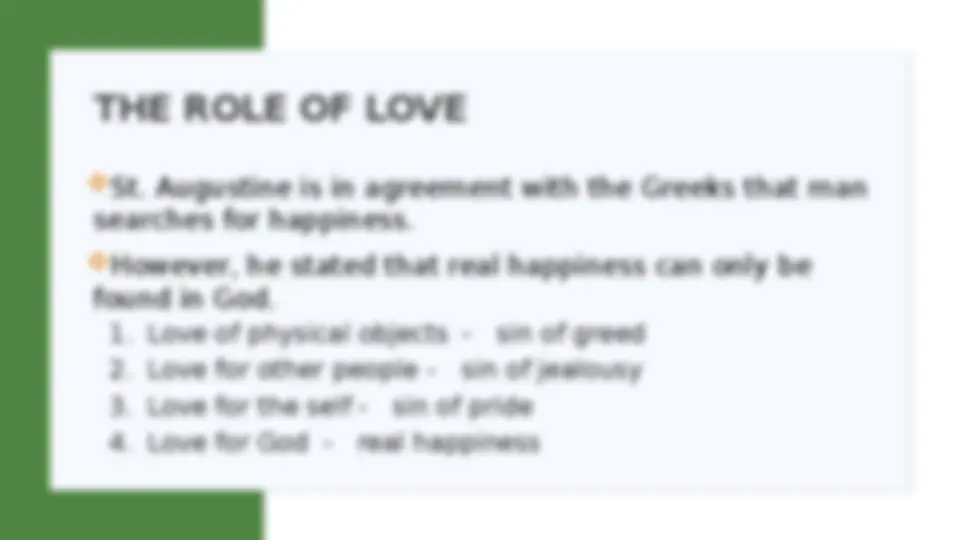
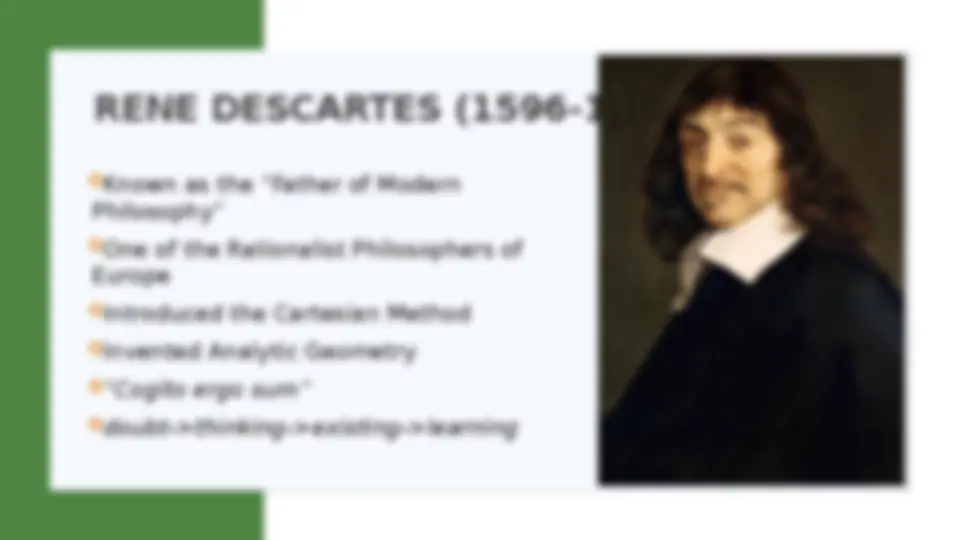
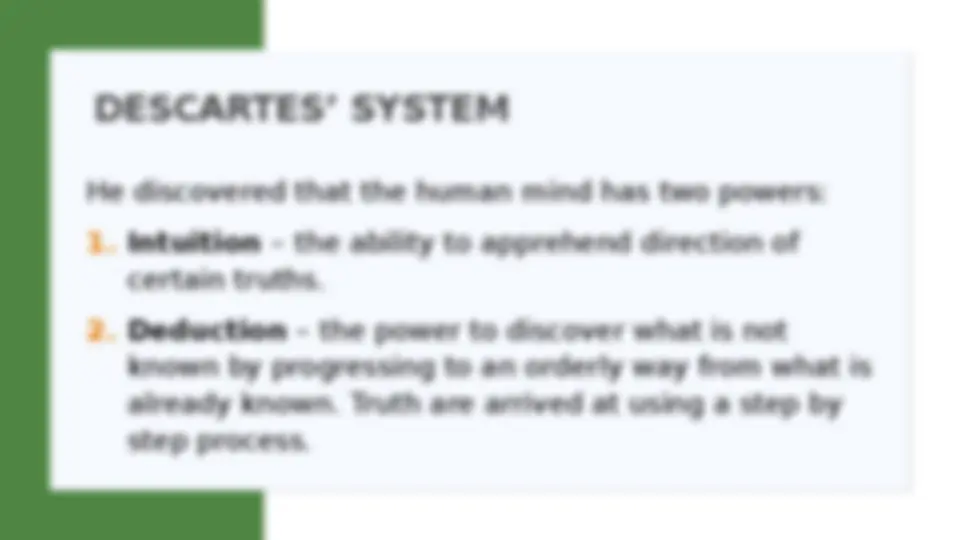
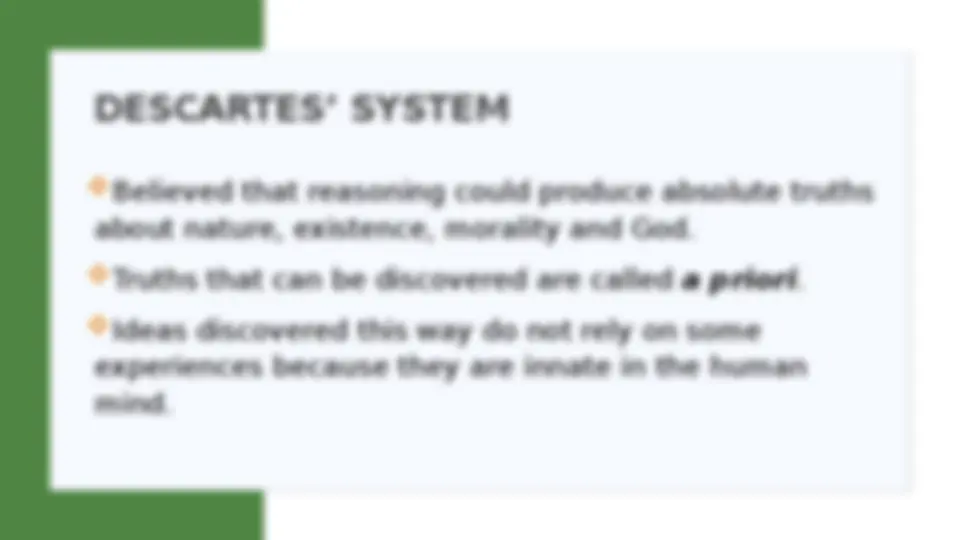
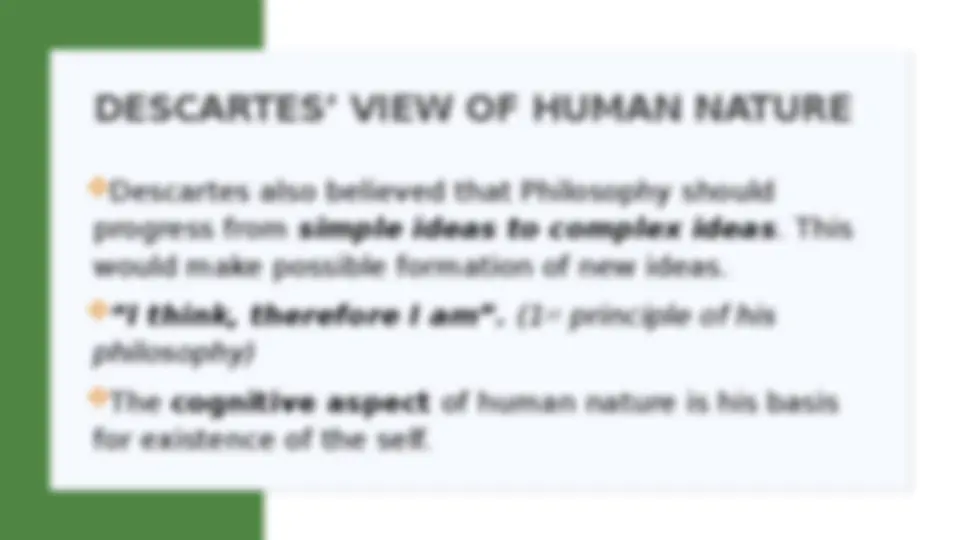
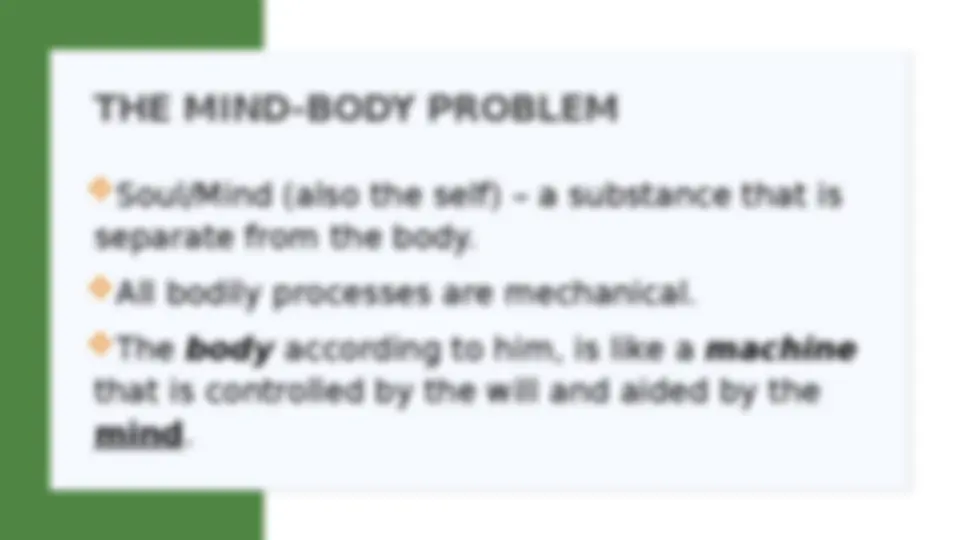
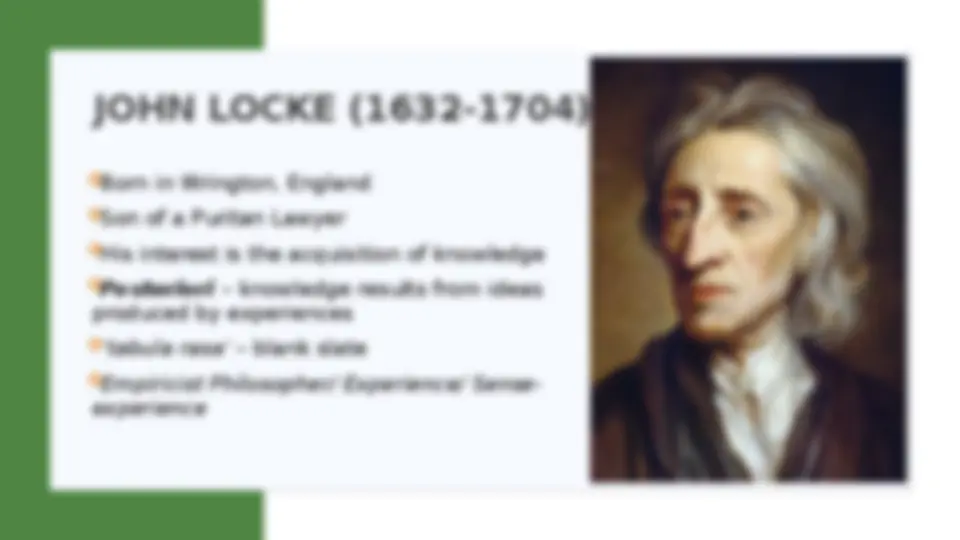
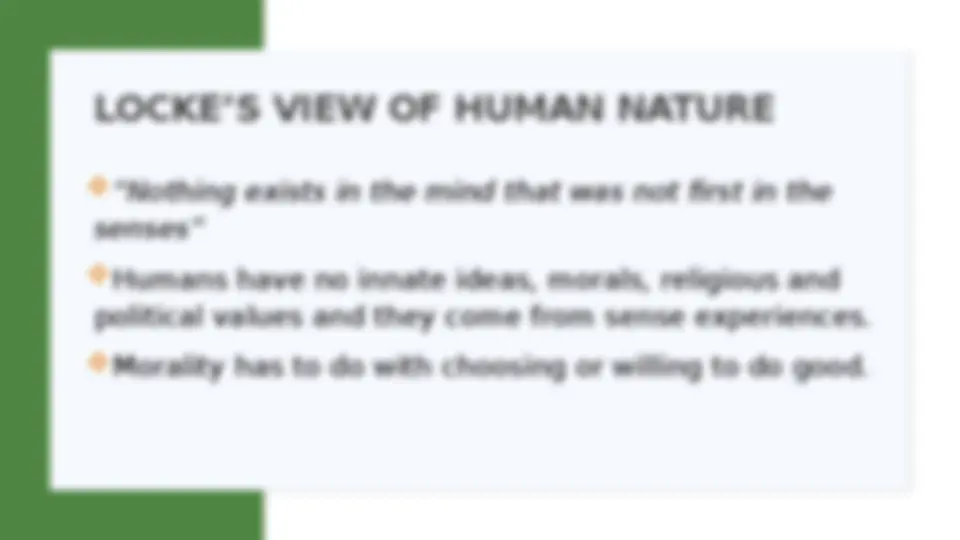
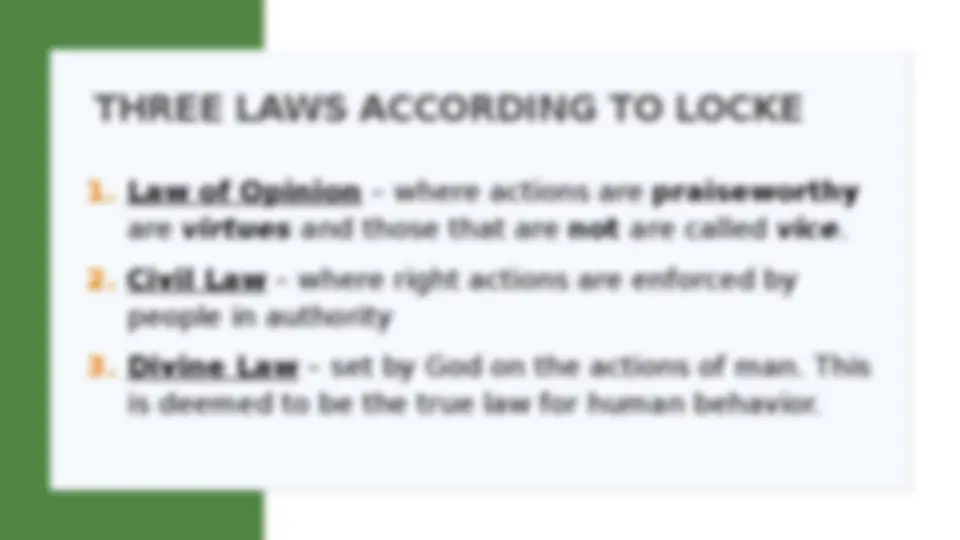
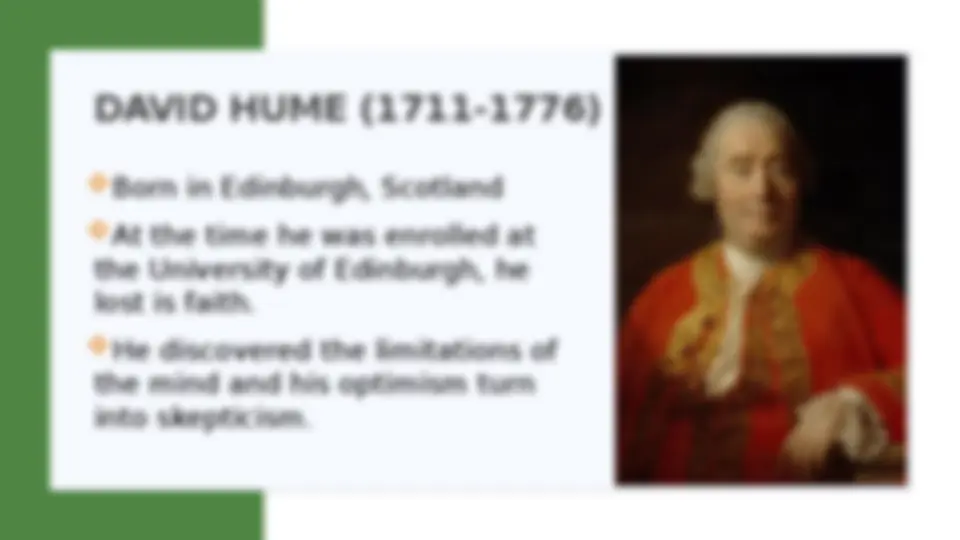
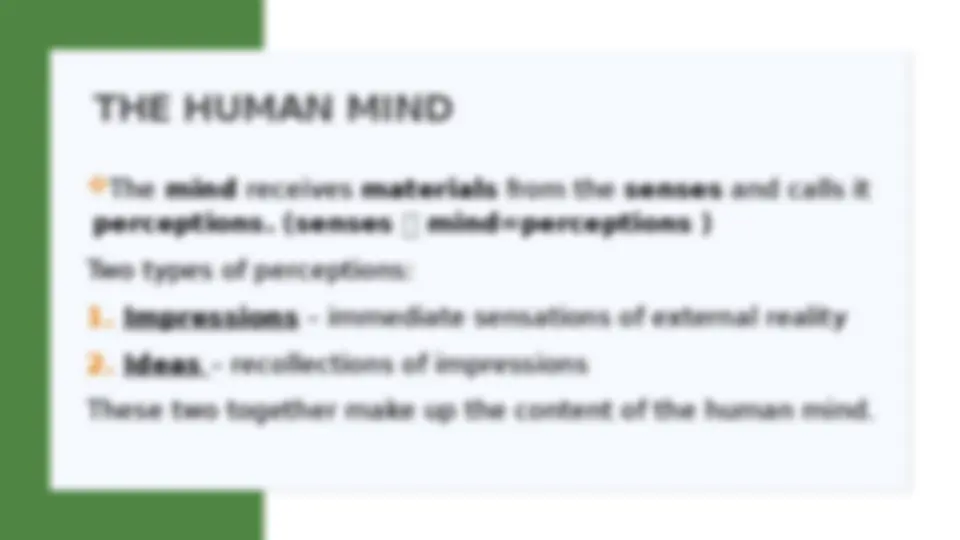
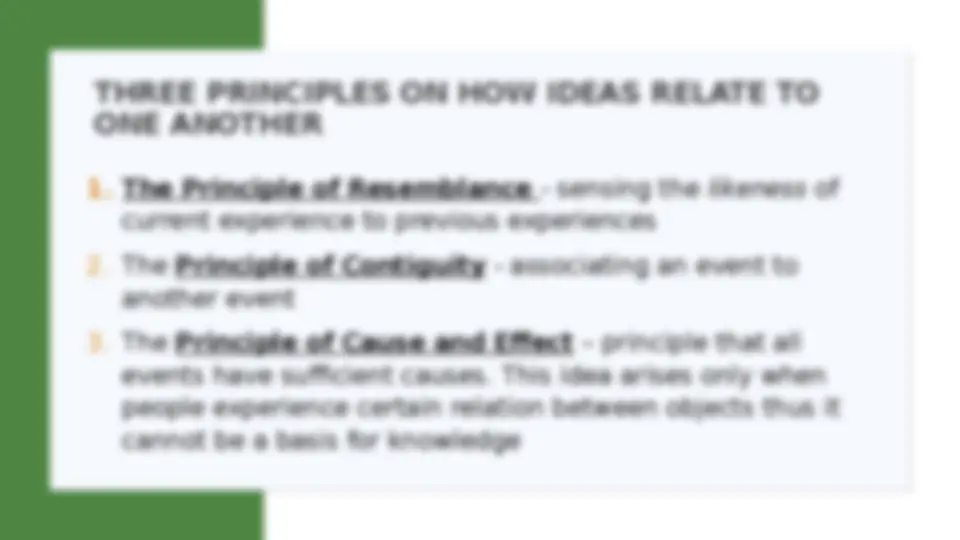
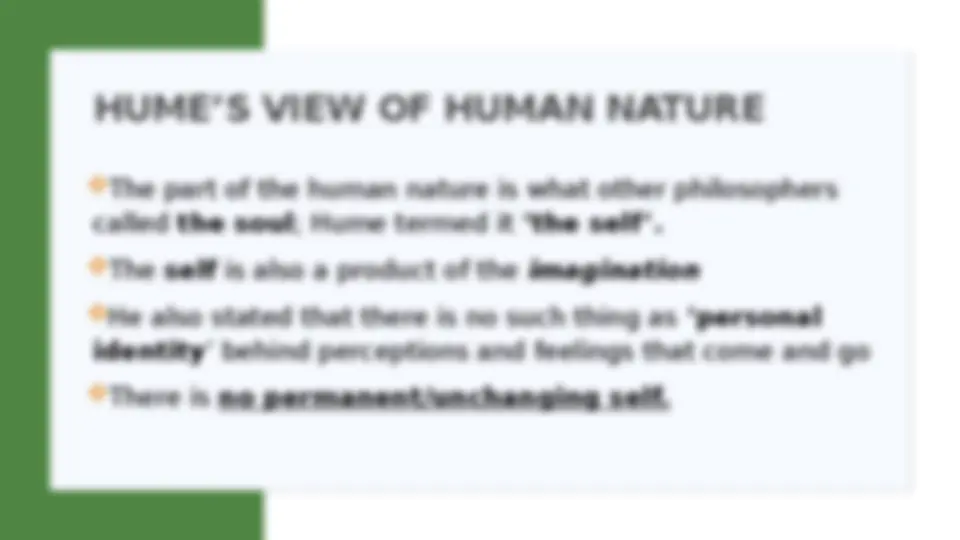
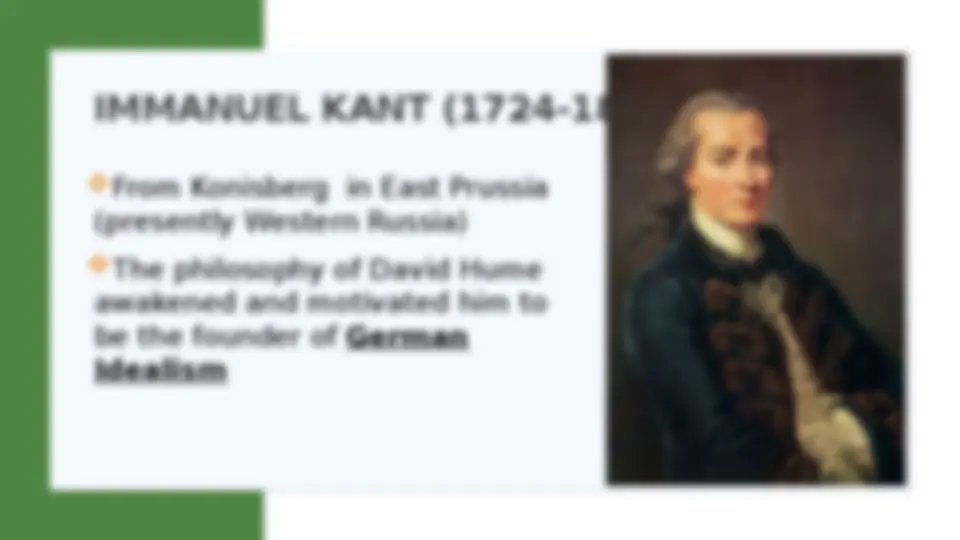
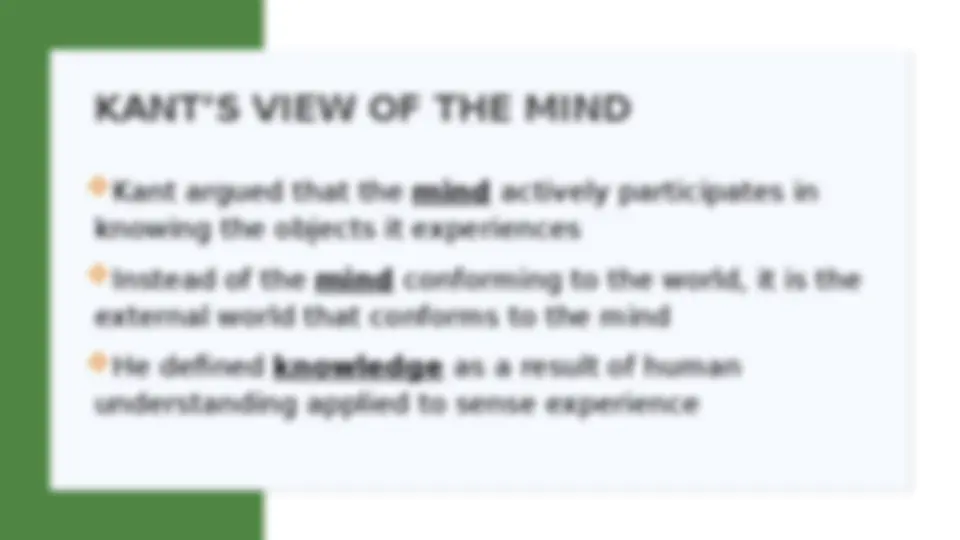
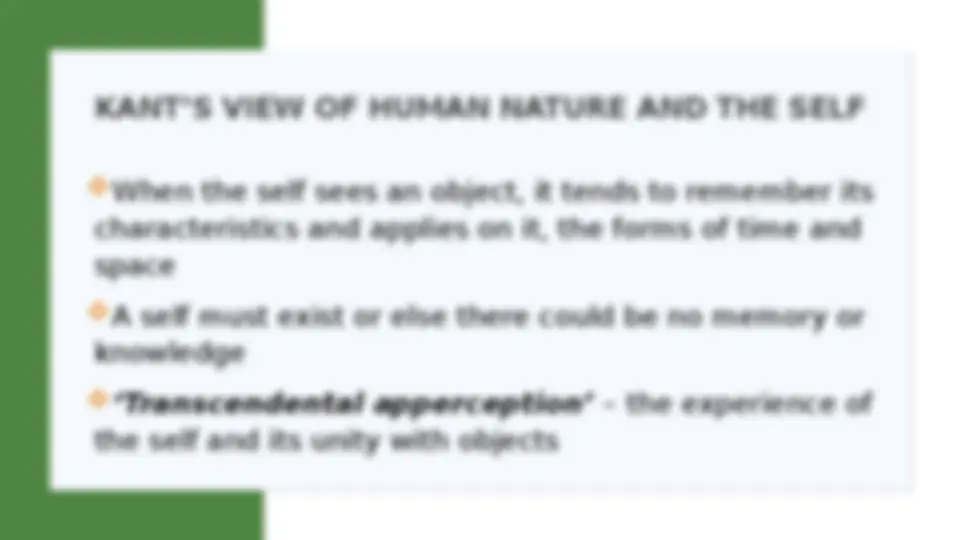
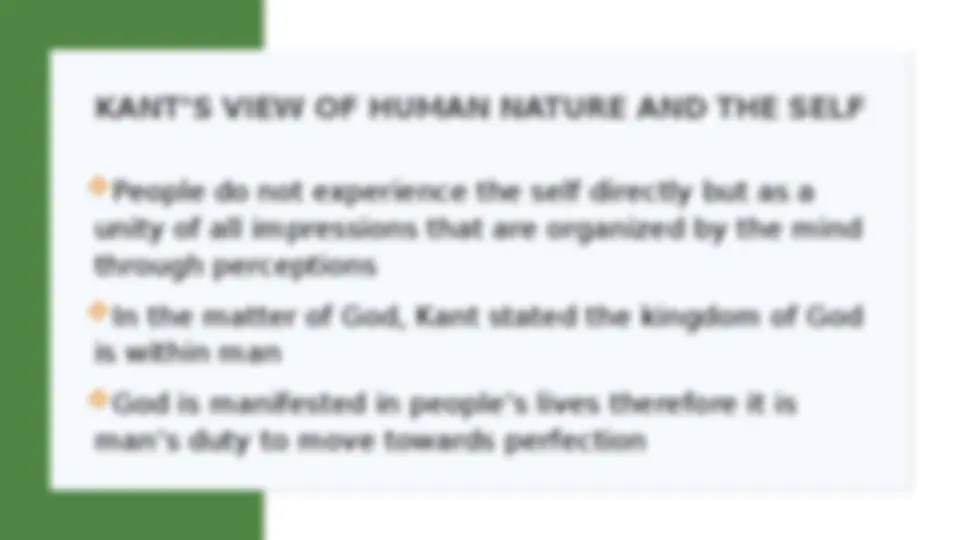
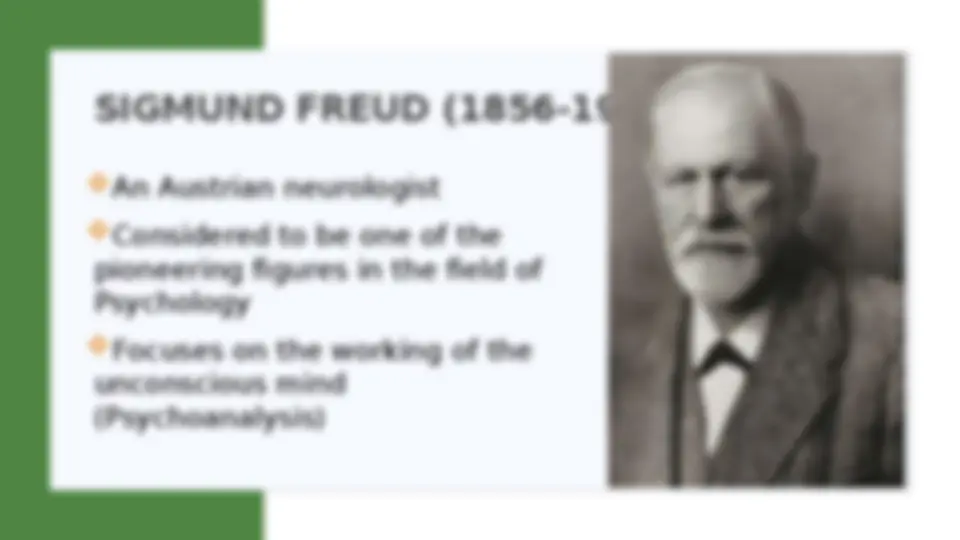
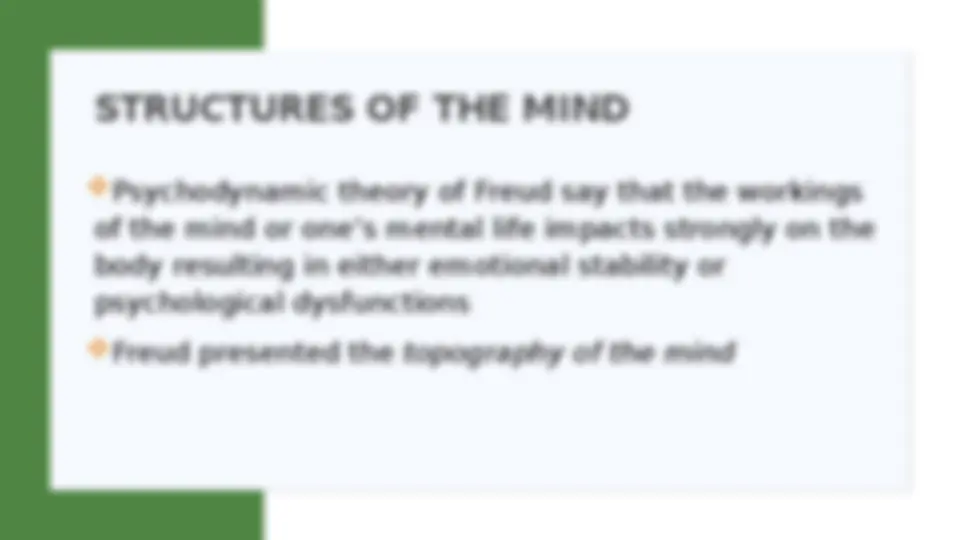
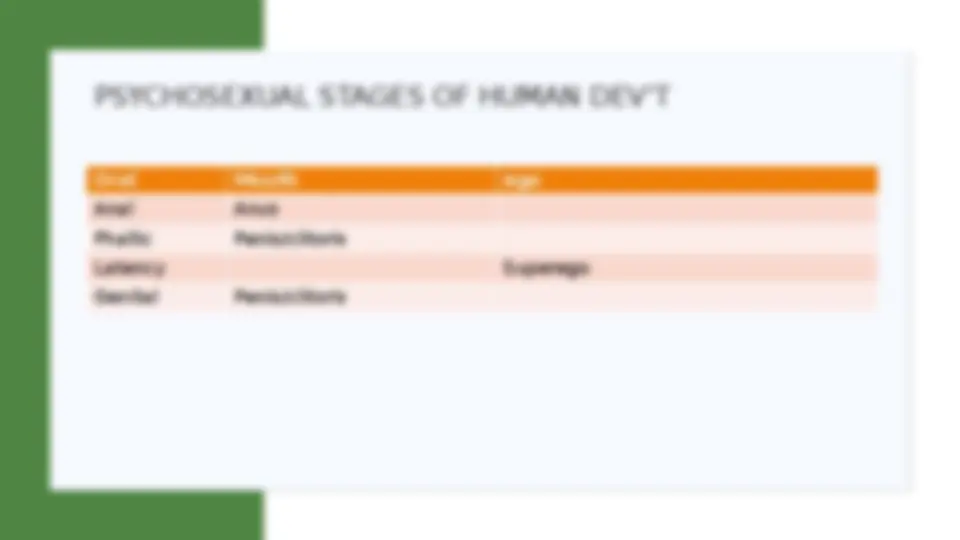
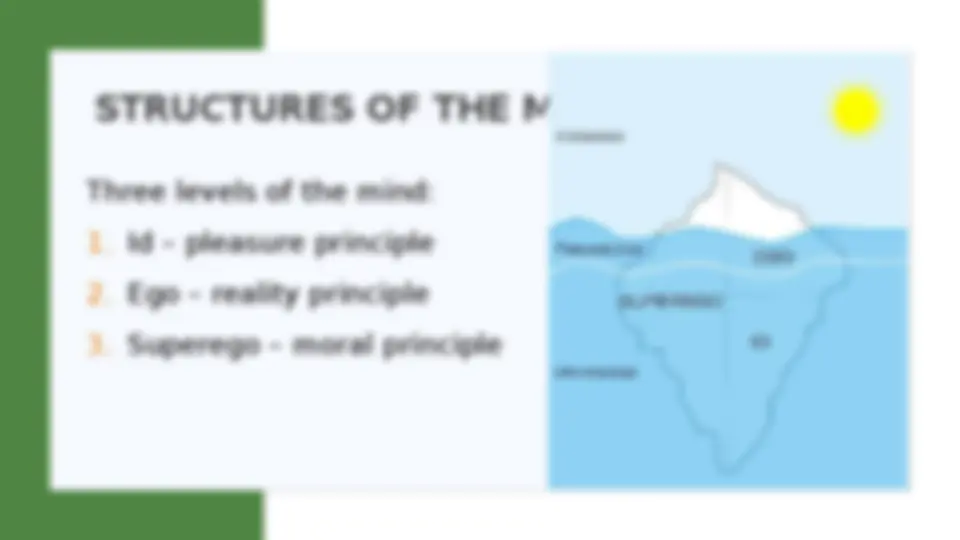
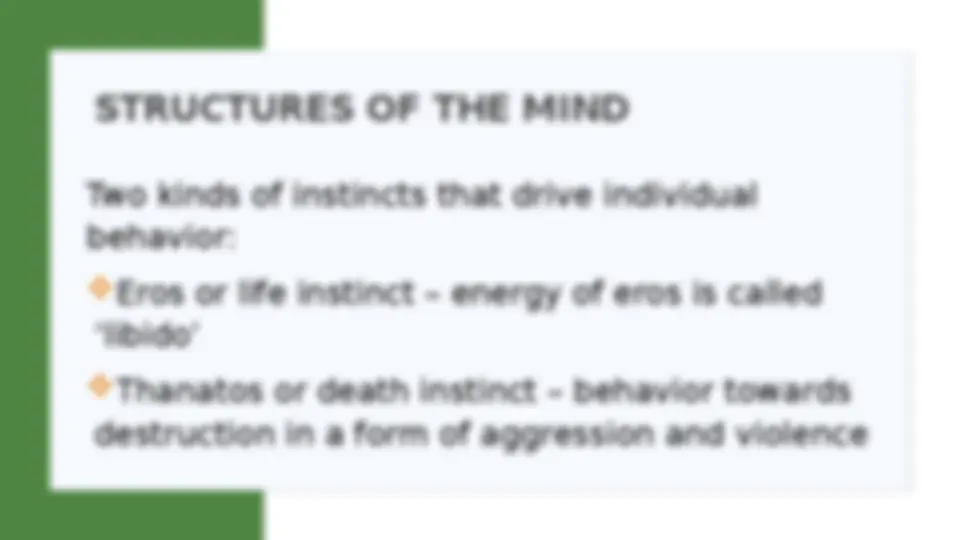
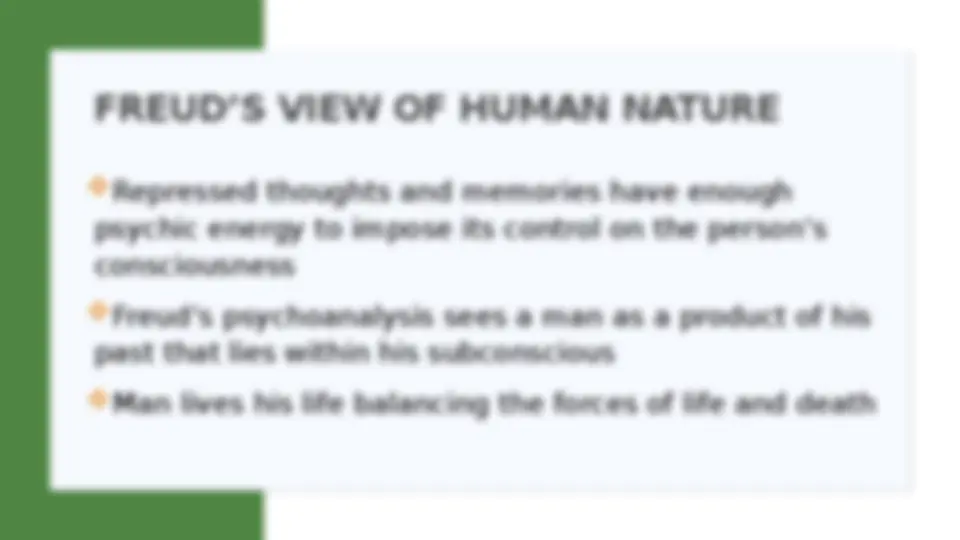
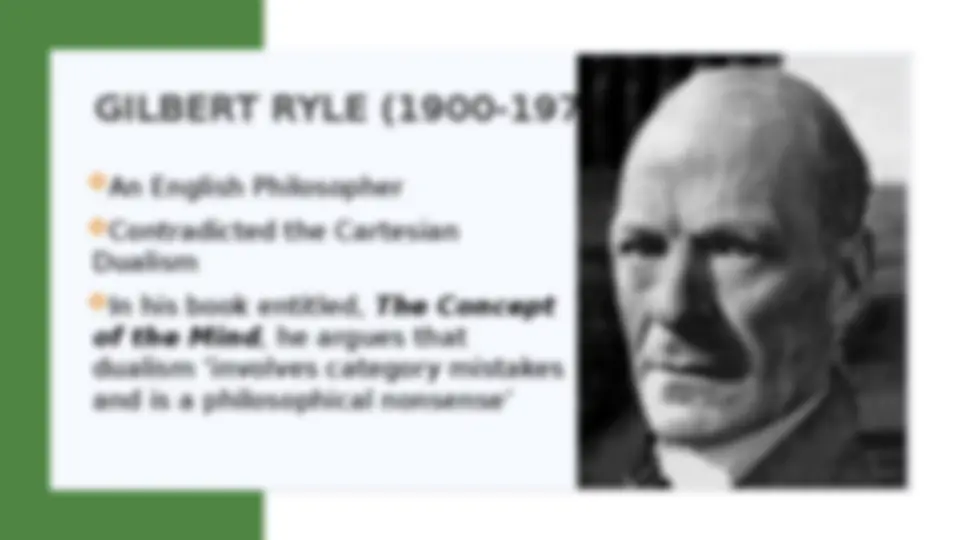
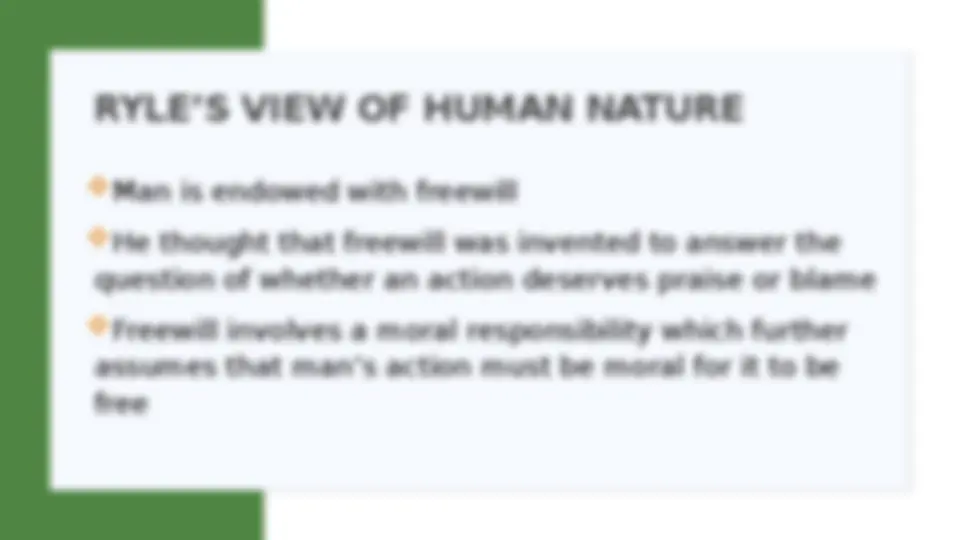
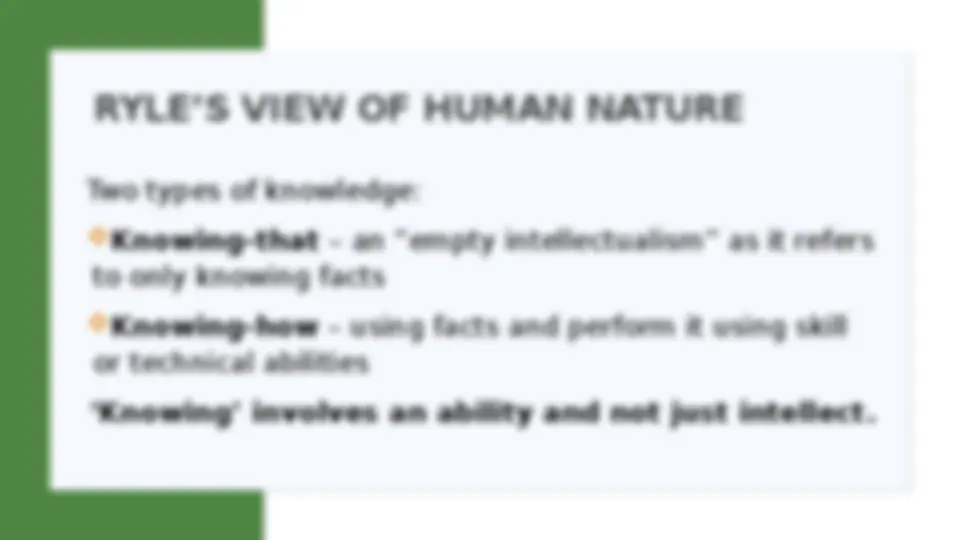
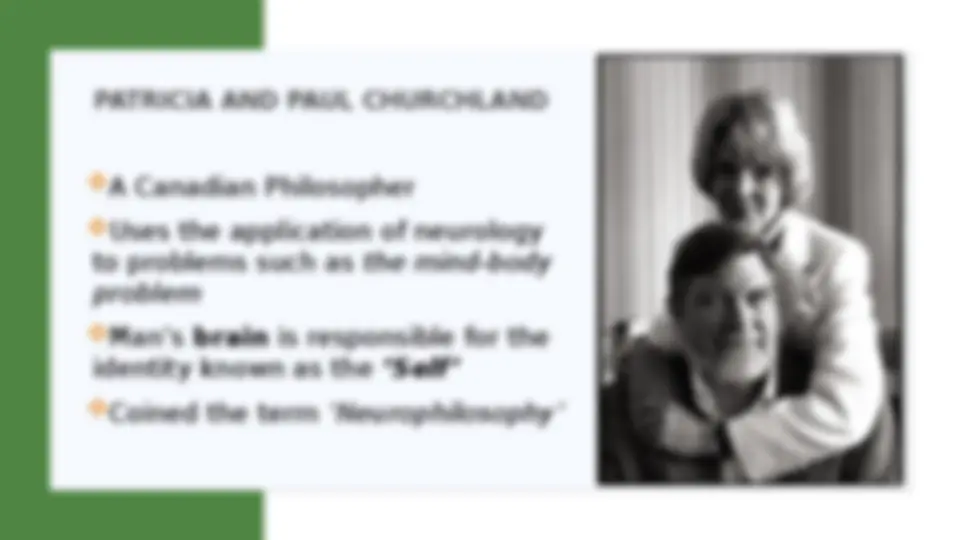
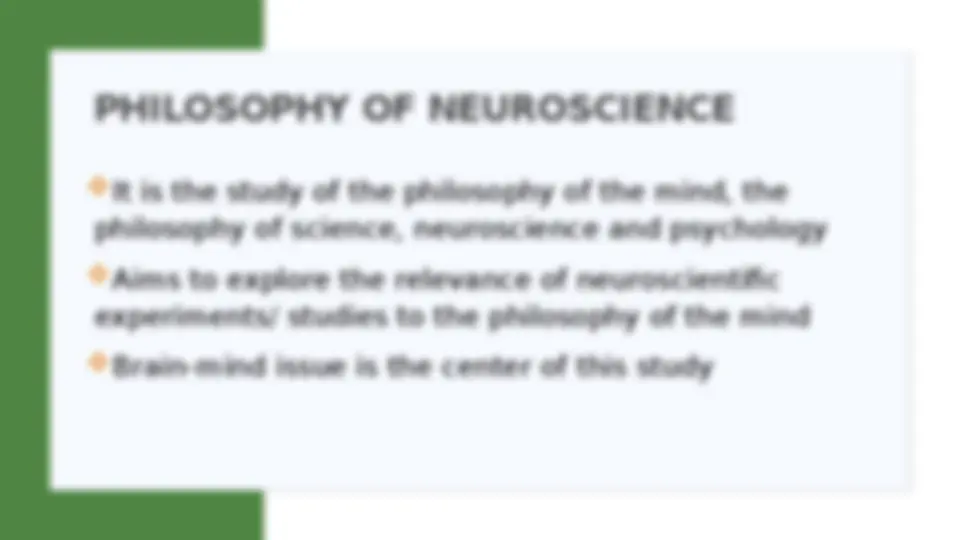
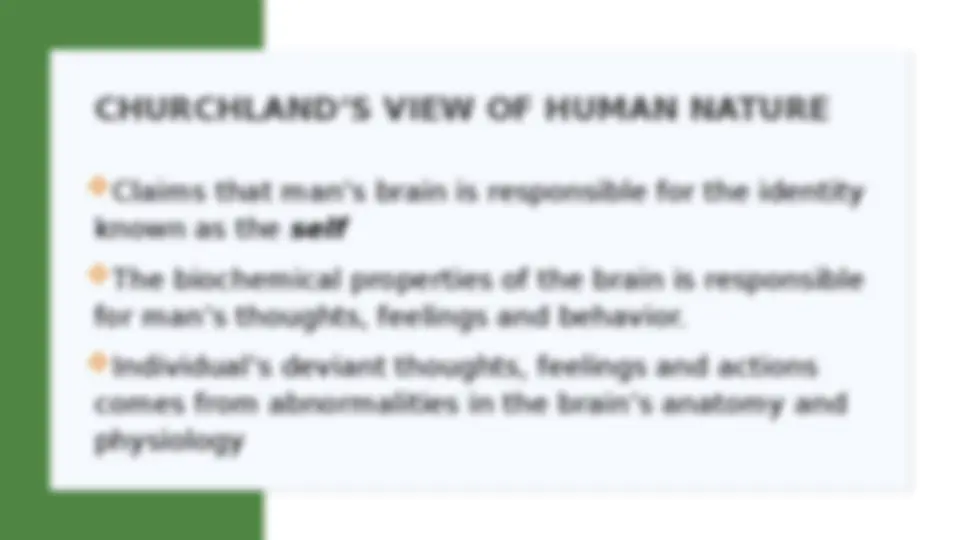
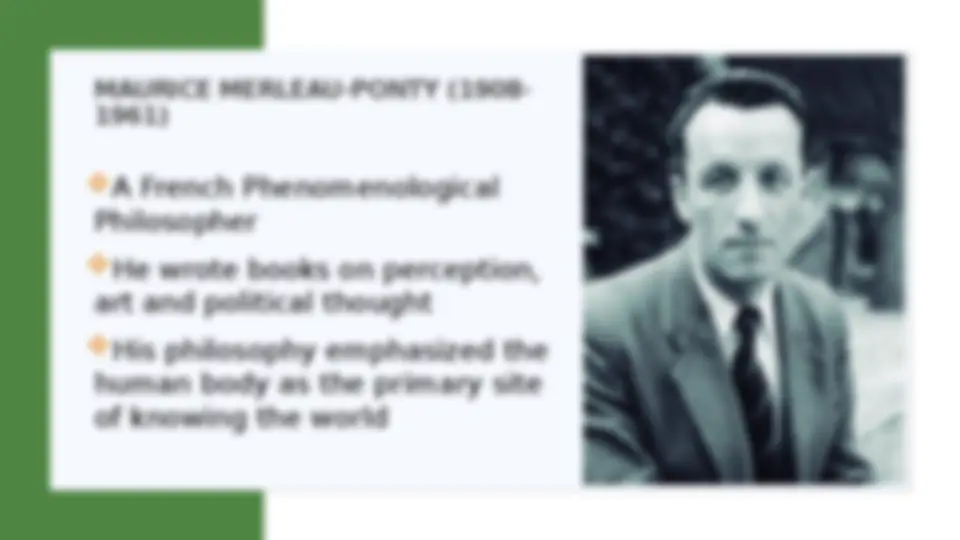
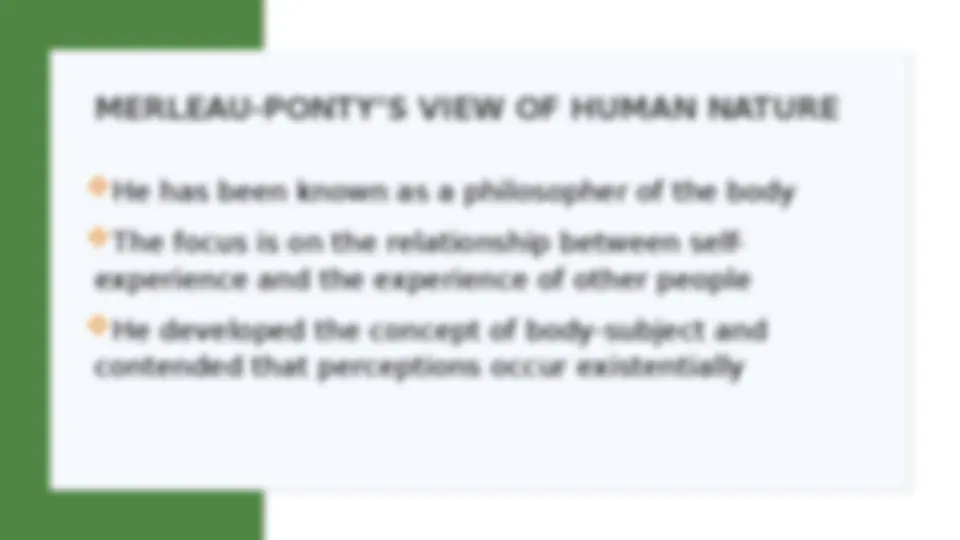
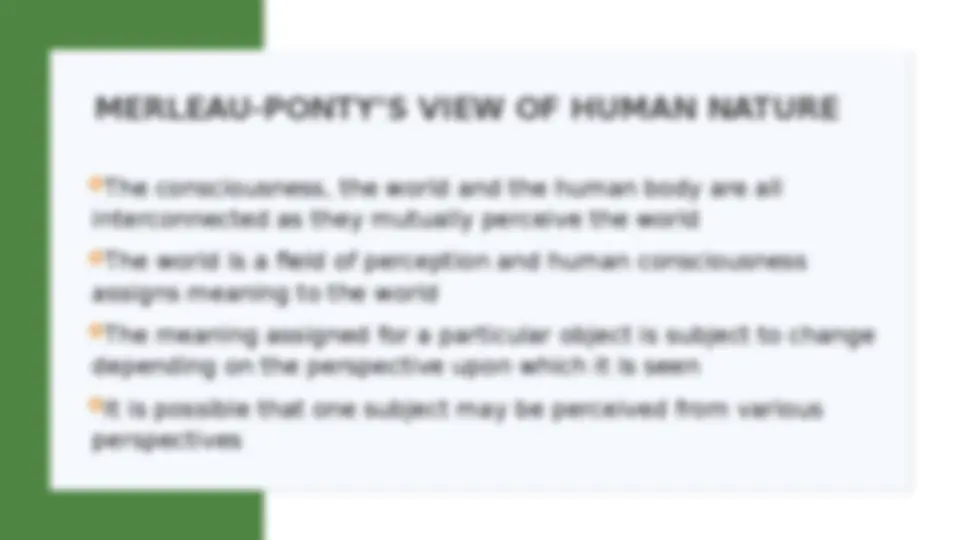

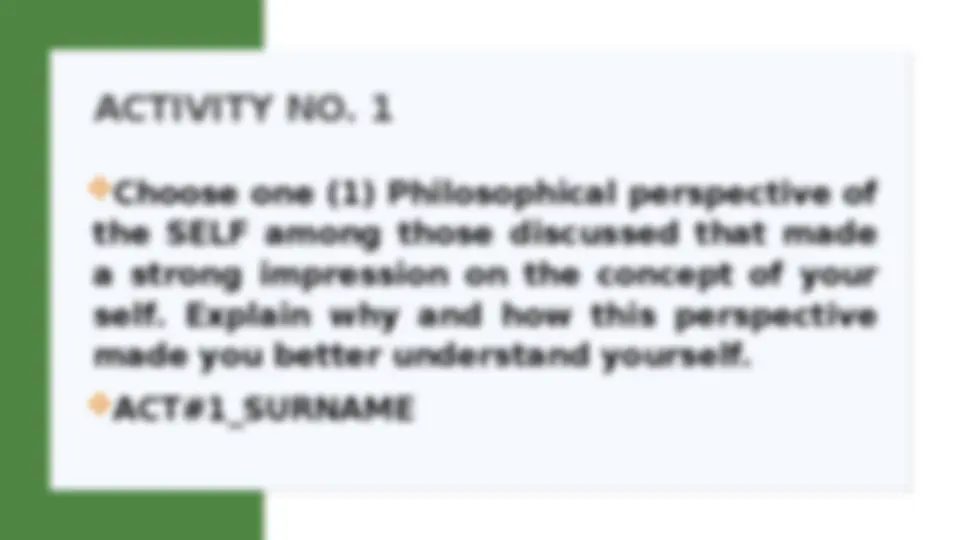


Study with the several resources on Docsity

Earn points by helping other students or get them with a premium plan


Prepare for your exams
Study with the several resources on Docsity

Earn points to download
Earn points by helping other students or get them with a premium plan
Community
Ask the community for help and clear up your study doubts
Discover the best universities in your country according to Docsity users
Free resources
Download our free guides on studying techniques, anxiety management strategies, and thesis advice from Docsity tutors
General Education subject. The course deals with the nature of identity, as well as the factors and forces that affect the development and maintenance of personal identity.
Typology: Slides
1 / 63

This page cannot be seen from the preview
Don't miss anything!
























































P r e p a r e d B y:
M a y e y e a n T. Ta g u i b a l o s , R P m
I n s t r u c t o r 1
these names are supposed to designate us in the
world;
called for.
A person who was named after a saint
most probably will not become an actual
saint.
The self is thought to be something else
than the name.
The self is something that a person
perennially molds, shapes, and develop.
The self is not static thing that one simply
born with like a mole on one’s face.
The self is just assigned by one’s parents
just like the name.
From the Greek words
“Philos” which means love
“Sophia” which means wisdom
In a broad sense, philosophy is an activity people
undertake when they seek to understand fundamental
truths about themselves, the world in which they live,
and their relationships to the world and to each other.
Socrates
Plato
St. Augustine of Hippo
Rene Descartes
John Locke
David Hume
Immanuel Kant
Sigmund Freud
Gilbert Ryle
Patricia and Paul
Churchland
Maurice Merleau-Ponty
An ancient Greek, Philosopher,
Scholar, Teacher
One of the ‘big three’ (SPA)
Considered to be the main source
of Western Thought
His works were only known through
Plato’s writing (The Dialogues).
People skilled in doing this were
called Sophists. They are also the
first teacher of the West.
Their arguments were usually
about practical things and not with
metaphysical speculations that lead
to the examination and critiquing of
socially accepted standards of
behavior within the society of
Athens.
Also called The Dialectic Method
This method involves asking a series of questions
seeking to find consistency and point out contradiction
The search for the correct/proper definition of a thing
This allowed him to question people’s belief and
ideas, exposing their misconceptions and get them to
touch their souls.
The unexamined life is not worth living.
Mission was to seek the highest knowledge and
convince others who were willing to seek this
knowledge with him.
Touching of soul, may mean helping the person to get
in touch with his true self.
The true self is not the body but the soul.
Delphi Oracle named Socrates as the wisest of all the men,
Socrates became confused.
After much contemplation, he realized what the oracle meant.
Socratic ignorance refers, paradoxically, to a kind of
knowledge–a person's frank acknowledgment of what they don't
know. It is captured by the well-known statement: “I know only
one thing–that I know nothing.” Paradoxically,
Socratic ignorance is also referred to as "Socratic wisdom."
Forms in the mind is the reality and the object we
sense is just a manifestation of the “Forms”
Forms refers to what are real, they are not objects
that are encountered with the senses but can only be
grasped intellectually.